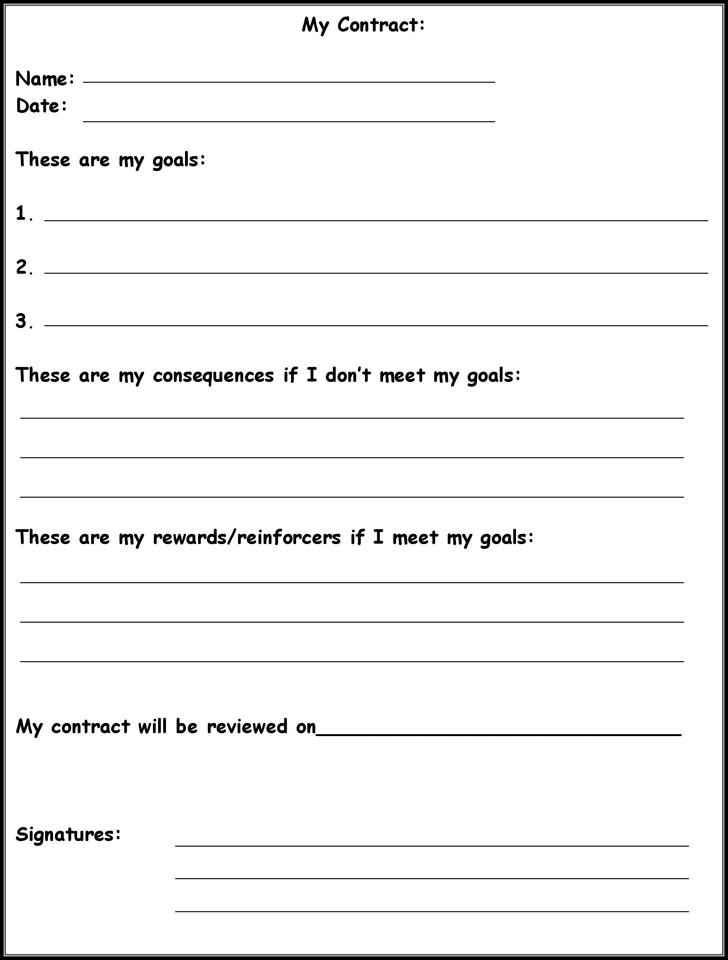The teenage years can be challenging for both adolescents and their families. As teenagers navigate the complexities of growing up, it is important to establish clear expectations, responsibilities, and consequences to help guide their behavior. One effective way to do this is through a behavior contract for teenagers.
This structured agreement can foster a positive and collaborative environment for the teen and their family or caregivers, setting the stage for open communication and mutual understanding.
What is a Behavior Contract for Teenagers?
A behavior contract for teenagers is a written agreement that outlines the expectations, responsibilities, and consequences for a teen’s behavior. This contract is typically created collaboratively between the teenager and their parents or caregivers, allowing both parties to have a say in the terms and conditions.
By clearly laying out the rules and guidelines in a written document, all parties involved can refer back to the contract as a reference point in times of conflict or confusion.
Why Use a Behavior Contract for Teenagers?
There are several benefits to using a behavior contract for teenagers. First and foremost, it provides a clear and structured framework for behavior expectations, which can help reduce misunderstandings and conflicts between teenagers and their families.
Additionally, a behavior contract can serve as a teaching tool, helping teenagers understand the consequences of their actions and encouraging them to take responsibility for their behavior. Involving teenagers in the creation of the contract can also promote autonomy and self-reflection.
How to Create a Behavior Contract for Teenagers
Creating a behavior contract for teenagers involves several key steps.
- First, sit down with your teenager and discuss the purpose of the contract, emphasizing the importance of setting clear expectations and boundaries.
- Next, brainstorm together to identify specific behaviors that need to be addressed and agree on the consequences for both positive and negative behaviors.
- Finally, draft the contract using clear and concise language, making sure to include all agreed-upon terms and conditions.
1. Establish Clear Expectations
Clearly outline the expectations for your teenager’s behavior, including rules for household chores, curfew, schoolwork, and social interactions. Be specific and avoid vague language to ensure there is no room for misinterpretation.
2. Define Responsibilities
Clearly define the responsibilities of both the teenager and their parents or caregivers. This could include tasks such as completing homework on time, communicating openly and honestly, and respecting each other’s boundaries.
3. Set Consequences
Agree on consequences for both positive and negative behaviors. Positive behaviors should be rewarded, while negative behaviors should have appropriate consequences that are fair and consistent.
4. Include Rewards and Incentives
Consider including rewards and incentives for your teenager to encourage positive behavior. This could be anything from extra privileges to small rewards like movie nights or outings.
5. Review and Revise Regularly
Set aside time to review the behavior contract regularly with your teenager to ensure that both parties are upholding their end of the agreement. Make any necessary revisions or adjustments to the contract as needed.
6. Seek Professional Help if Needed
If you find that your teenager is struggling to adhere to the behavior contract or if there are underlying issues that need to be addressed, don’t hesitate to seek help from a mental health professional or counselor.
7. Be Consistent and Supportive
Consistency is key when implementing a behavior contract. Stick to the agreed-upon consequences and rewards, and offer support and guidance to your teenager as they navigate the challenges of adolescence.
8. Encourage Open Communication
Encourage open communication with your teenager throughout the process of creating and implementing the behavior contract. Listen to their concerns and feedback, and be willing to make adjustments to the contract as needed.
9. Lead by Example
Remember that you are a role model for your teenager. Lead by example and demonstrate the behaviors and values that you expect from them, showing them how to handle challenges and conflicts with grace and maturity.
Examples of Behavior Contracts for Teenagers
There are many resources available online that provide templates and examples of behavior contracts for teenagers. These templates can serve as a starting point for creating your own customized contract that suits your family’s unique needs and circumstances. Some key components to consider including in your behavior contract are:
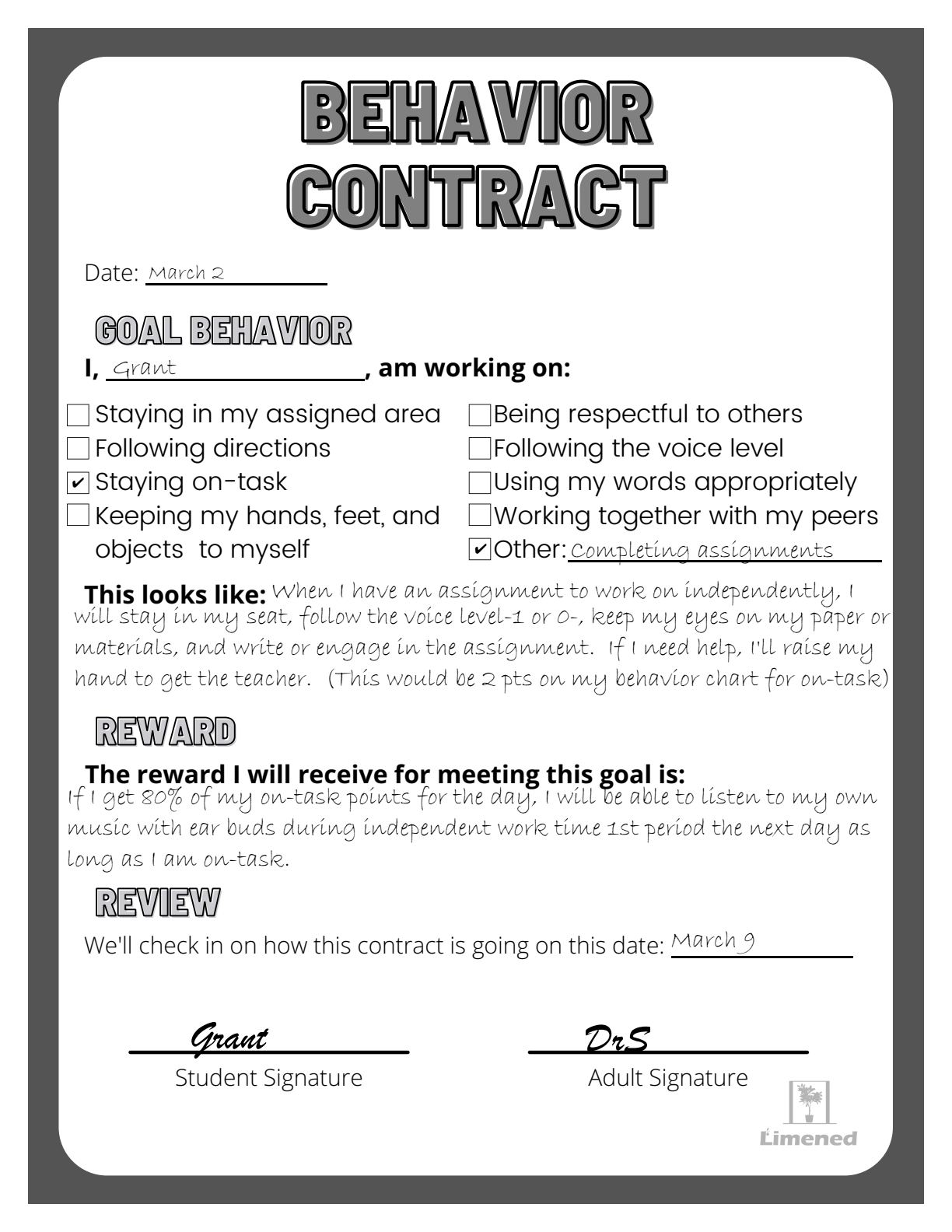
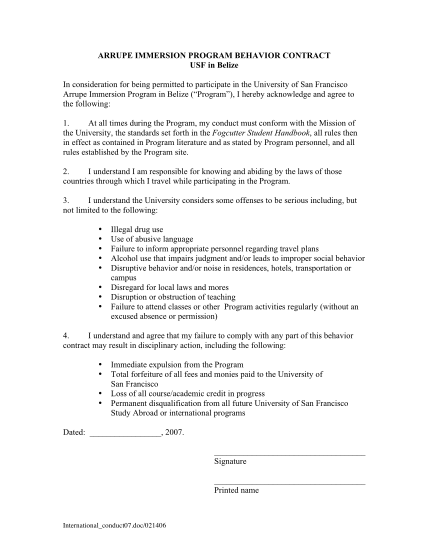
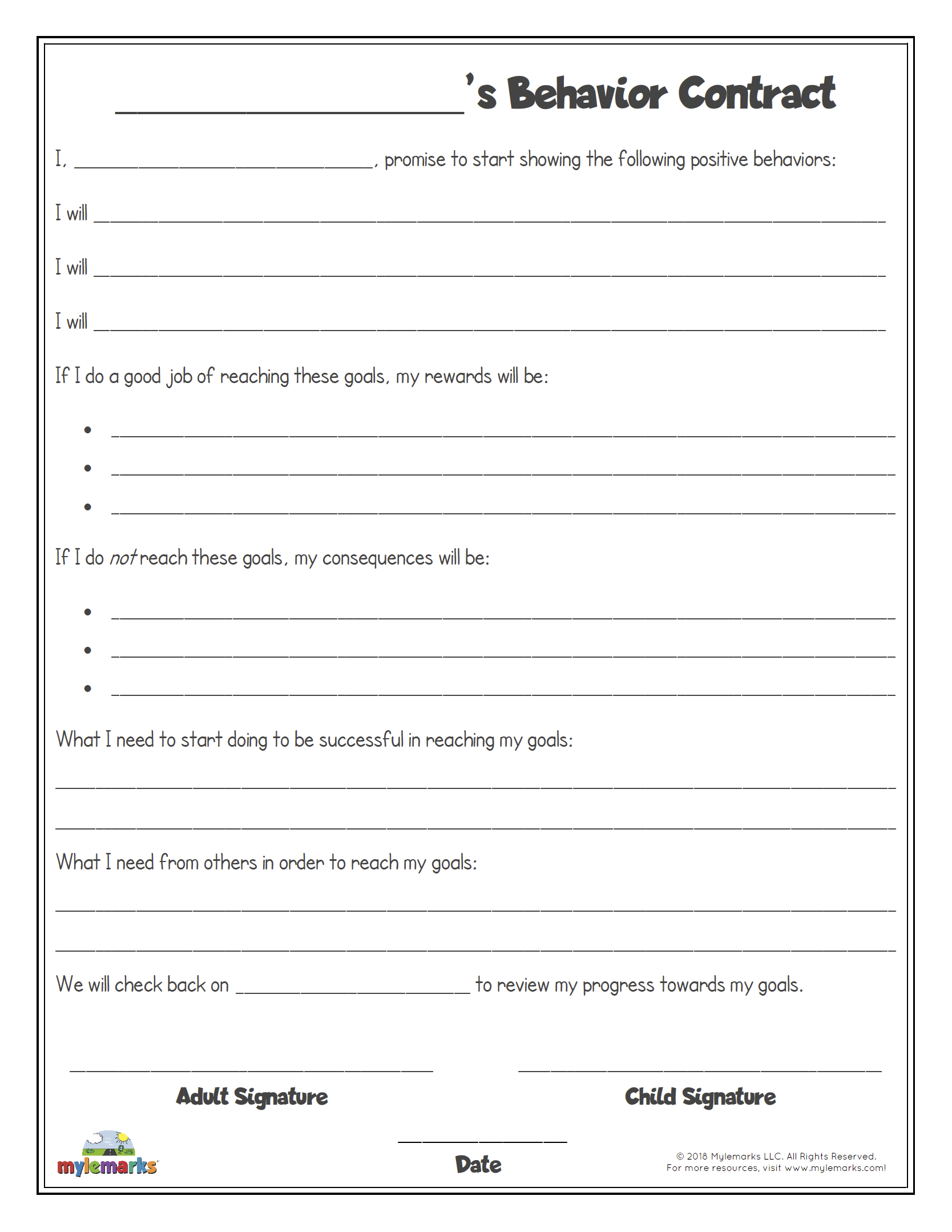
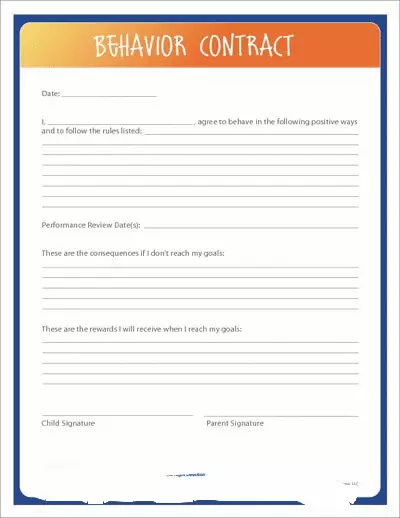
Tips for Successful Implementation of a Behavior Contract
Implementing a behavior contract for teenagers can be a powerful tool for promoting positive behavior and fostering a healthy relationship between teenagers and their families. Here are some tips for successful implementation:
- Involve your teenager in the process: Encourage your teenager to take ownership of the behavior contract by involving them in the creation and decision-making process.
- Be consistent: Stick to the agreed-upon consequences and rewards to maintain accountability and consistency.
- Stay positive: Focus on rewarding positive behaviors and offering encouragement and support to your teenager.
- Communicate openly: Foster open communication with your teenager and create a safe space for them to express their thoughts and feelings.
- Seek help if needed: If you find that your teenager is struggling, don’t hesitate to seek help from a mental health professional or counselor.
- Review and revise regularly: Set aside time to review the behavior contract regularly and make any necessary adjustments to ensure its effectiveness.
- Lead by example: Demonstrate the behaviors and values that you expect from your teenager, serving as a positive role model for them to follow.
Behavior Contract For Teenagers – Download
